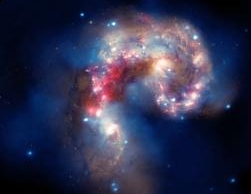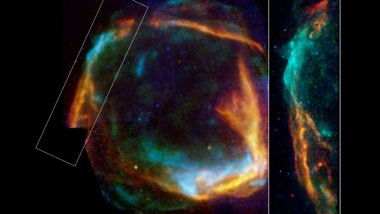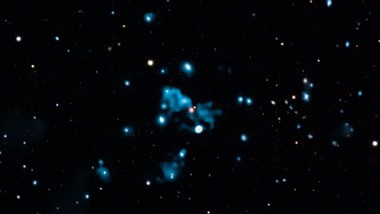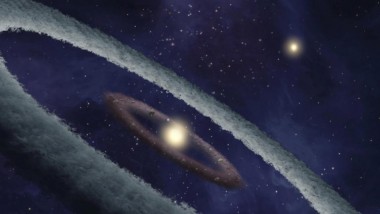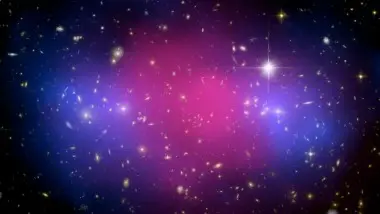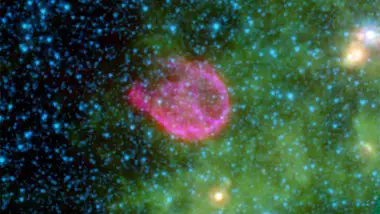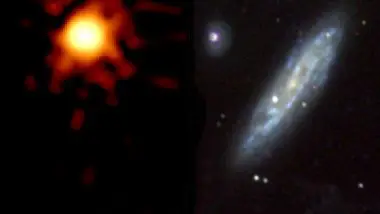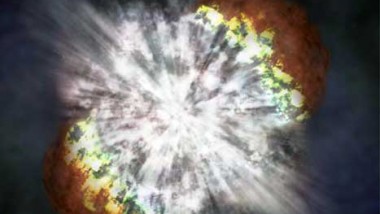NASA has recently released a marvelous image of two tangled galaxies, captured using three different telescopes: the Chandra X-ray Observatory, the Hubble Space Telescope, and the Spitzer Space Telescope. A new image of two tangled galaxies has been released by ...
Milky Way’s Particle Accelerators
Researchers from the Astronomical Institute at Utrecht University have been observing the Milky Way’s particle accelerators. Using data from NASA’s Chandra X-Ray Observatory and European Southern Observatory’s (ESO) Very Large Telescope, the researchers have determined that cosmic rays from our ...
Remnants of Black Hole Eruption Detected
Scientists at the Chandra X-Ray Observatory have detected a ghost x-ray image around a black hole. Such ghosts are believed to be remnants of a past explosion from the black hole. Lower energy electrons remaining after the bulk of the ...
Dustiest Binary Star System Found
A team of American astronomers discovered that two terrestrial planets underwent a collision only a few hundred thousand years ago. They were studying what was presumably a very dusty main sequence star in an attempt to determine its age. During ...
Galaxy Clusters Collision Captured
An international team of astronomers, led by UCSB and Stanford astronomers, captured the collision of two galaxy clusters using the Hubble Space Telescope and the Chandra X-Ray Observatory. Like the Bullet Cluster collision detected two years ago, this collision supports ...
Luminous Object Confirmed as Supernova
An international team of astronomers have confirmed that a radio and x-ray luminous object is indeed a supernova, as has long been suspected. Located only 12 million light years away in a nearby galaxy, there is an abundance of observational ...
Swift Catches Exploding Star
NASA’s scientists recently used the Swift Satellite in order to see a star explode and become a supernova. Although over the past 100 years astronomers have observed thousands of supernovas, every time it was seen, it was only after the ...
Brightest Supernova Ever
A hundred times more energetic than a typical supernova, the death of an extremely massive star in the galaxy NGC 1260, some 240 million light years away from earth, was recently observed by NASA’s Chandra X-ray Observatory as well as ...

